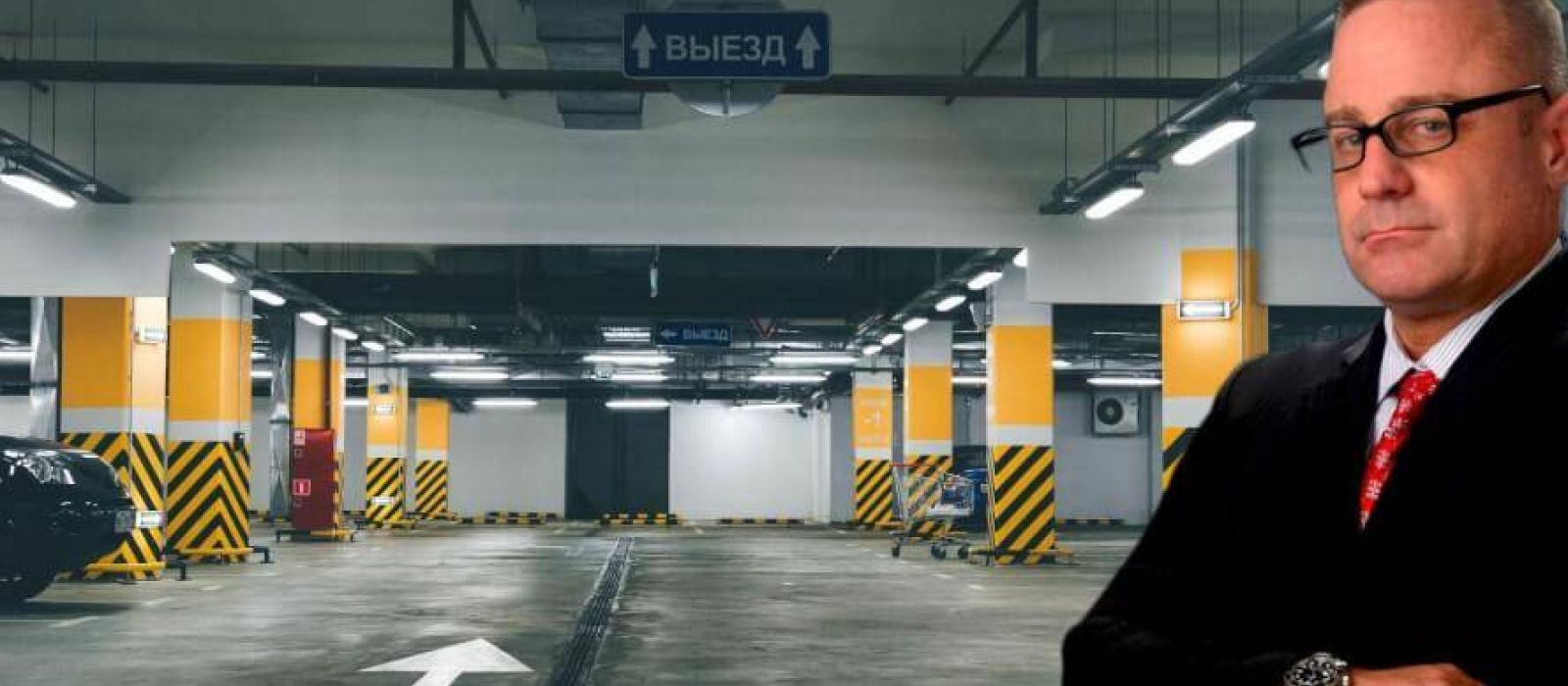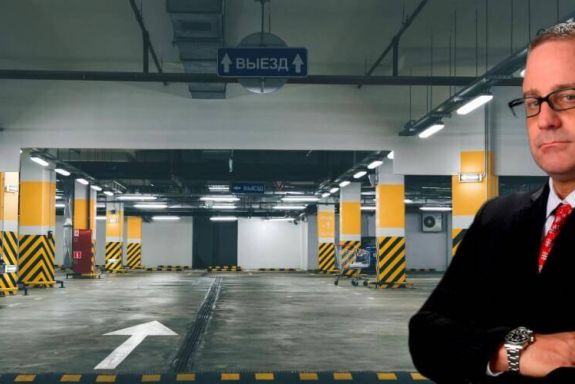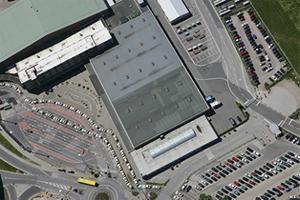

If we don’t win, you don’t pay.
NO WIN – NO FEE

ON CALL 24/7

U.S. Marine

Hello and welcome to the legal help center for vehicle storage facility mishaps. Our seasoned staff helps people recover from injuries sustained in parking structures.
We Help People In Disputed Liability Parking Lot Incident-Injury Claims

Ehline Law Firm’s personal injury attorneys specialize in these types of scenarios. So, we created this page to assist individuals and educate them about their tort and contract law rights.
- First, a parking structure or garage owner is responsible for keeping it safe for users.
- So, they cannot delegate their duty to maintain the property reasonably and safely.
This is despite people storing their cars receiving tickets saying, “We assume no responsibility,” etc. When keepers don’t keep the parking structure safe, they are accountable, so now they can be named in a premises liability lawsuit.
These incidents can be caused by:
- Defective concrete barricades
- Poor architectural design.
Also, there are many ways they can happen. But you will eventually need a parking structure injury attorney by your side. Ehline Law Firm has recovered tens upon millions of dollars for wounded victims and their families in cases like this.
What are Some Theories of Liability for Overcoming Defenses?
First, these cases remain covered under the same law as any other premises liability case (See Column 2).
- Premises liability law pins down liability against the wrongdoer landowner for harm by the landowner to another person(s).
- But they must have that property or a structure on the premises for liability to apply.
- The law protects those who violate your safety by misfeasance, nonfeasance, or malfeasance.
So, when people entered the premises in question, they harmed the well-being of others. The law and definition of premises liability can vary between jurisdictions.
- But one constant is constant in most jurisdictions and venues: property owners must keep visitors and invitees safe from certain dangers.
What is the Confusion Over The Liability Waiver?
As discussed above, there seems to be a lot of confusion over these pieces of paper. They get chugged out of the parking voucher dispensers at airports and other storage houses for cars, containers, and other vehicles.
- Several potential legal theories light up in any lawyer’s mind. And we shake our heads whenever we hear that a parking facility has disclaimed its wrongdoing. Lawyers look at these as unassuming, one-sided “contracts.”
What About Liability for Construction/Design Defects?
- In some cases, the design-build process could cause a building collapse.
And this usually happens when the structure is entirely of vehicles. When fully laden, its heavier weight sees the many problems that can arise.
Imagine a heavier vehicle beginning to navigate up and down the successive stories.
- In poorly built structures, the swaying momentum displaced into the winding structure could collapse the whole building.
In other cases, a building could collapse during a low-magnitude earthquake.
- And supposedly, it had been hardened to withstand quakes.
In all cases, there is property damage and a tort claim. And this is typical of the legal action that could arise from these cataclysms. Anytime the structure or part of it has failed or imploded, there is a potential case.
What About Liability for Negligent Maintenance?
The property owner, or landlord, is legally responsible for adequately maintaining parking areas.
The same goes for:
- Stairwells
- Handrails
- Elevators
- Curbs
- Oily surfaces
- Wet areas.
And they should also place parking barricades and safety barriers.
When proper care is not taken, severe injuries or wrongful fatalities can occur. These are mostly due to the negligence, misfeasance, malfeasance, or nonfeasance of another.
What About Negligent Security Cases?
Certain cases are tort scenarios, like when a woman gets raped or assaulted going to or from her car. Bad security may also mean a man gets mugged. Also, these are well known to the public from movies and news stories. So yes, you can sue the landlords in many cases. But you need to call Ehline Law Firm to learn more.
What About Suing the Parking Facility for Negligent Supervision?
This raises the above issue of negligent provision of security.
- These cases often revolve around action and inaction taken in and around “pay to park.” So these are generally parking structures and parking lots.
But they are in a dangerous area. No, a person cannot waive their right to safe entry or exit.
- Liability attaches if it happens at a structure or lot that is a known danger.
- If the manager or owner in California knows about it, they are liable if you get hurt.
But none the less, defenses as follows are available:
- No known danger to the landlord excuses culpability
- Adequate safeguards also mean that no suit shall lie. However, the landlord helps keep users and licensees somewhat reasonably protected. This is all typically a question of fact.
What About Breach of Bailments and Theft/Damage?
A Bailment is Defined as:
The temporary placement of control over, or possession of Personal Property by one person, the bailor, into the hands of another, the bailee, for a designated purpose upon which the parties have agreed.The term bailment is derived from the French bailor, “to deliver.” It is generally considered to be a contractual relationship since the bailor and bailee, either expressly or impliedly, bind themselves to act according to particular terms… (Source.)
In California, especially in LA, this happens a lot as follows:
- A bailment is created almost every time you use valet parking, self-parking service, or leave key attendants.
- The bailee gets handed vehicle keys by its owner (“Bailor.”)
- The car’s owner, you, are also technically renting storage space.
- So, you have temporarily transferred possession and control of the conveyance.
- You gave up the keys and, therefore, control to the garage attendant.
- However, in most cases, if you keep keys to a secured vehicle, the contract could be a lease to rent space. In that case, no vehicle rights are given over.
But What About the Disclaimer on the Packing Slip?
Ok. That’s an often-asked question. Let’s address this like a lawyer.
Enter the disclaimer.
dis·claim·er disˈklāmər/ noun noun: disclaimer; plural noun: disclaimers
1. a statement that denies something, esp. responsibility.
“the novel carries the usual disclaimer about the characters bearing no relation to living persons”
synonyms:
As you can see above, this “disclaimer” language can hinder a successful property damage claim.
- Typically, it involves a denial of legal responsibility or control.
- Often, this is done over the place itself with a printed disclaimer. The parking slip invariably has this nasty little disclaimer on it.
- It claims the garage or parking company is not responsible in any way for damages or theft.
But what about the theory of bailment above? How about that it goes against California’s public policy? Courts don’t allow people to disclaim their negligence rights.
- And if the parking attendant ruins the car’s suspension on speed bumps, how is he not responsible?
- What if the parking attendant damages or scratches the wheels, paint, or another part of the car?
So, while moving it back and forth during parking, how can they not become held legally liable?
- What if your cell phone sp, is changed or your wallet gets stolen?
What do the CA Courts Say About Disclaimers Generally?
- Some courts have found that preprinted passes are an express waiver of liability.
So they say it may impart adequate notification to patrons. Hence, they knew the garage would not assume any responsibility for property damage.
- However, most of those same courts held this in cases where the parking lot disclaimed fault for damages caused by third parties. The car had been parked in the storage facility.
But even in those cases, some courts decided there is never a waiver of direct liability for your acts. So unless it got consented to, it’s a no-go.
- And if a person did not read the disclaimer, courts have found insufficient notice.
So, they could not even disclaim third-party liability in that case. But remember, there could also be a sign or other posted warning, right?
- But what about possible evidence that the customer did not see a warning posted?
- Often, the structures are poorly lit.
- Also, there are distractions or poor placement of signs. So, these could indeed render them useless.
However, most courts consider all of this on a case-by-case basis. We could find no bright-line case that was on point. So, as it stands, it is a wobbler. A garage may or may not get out of liability for its own negligence on a case-by-case basis.
What About Other Known Hazards?
Although we did discuss what happens when a premises owner or controller fails to act in the face of known dangers, this section deals with the challenge of what happens.
And also, how exactly does an owner or controller engage in a particularly hazardous activity?
- For example, storage of explosives or an open, dangerous, unprepared condition.
- Could you foresee a problem with the ticket stand selling tickets beneath the fireworks display?
Suffice it to say that when an explosion or fire does happen, the controller or owner will typically assume a heightened duty of care. And this is true even when confronted with a trespasser getting hurt at the manufacturing plant.
What About the Storage of Dangerous Goods and Things?
Let’s say, for example, the structure stores dangerous construction equipment. In that case, a duty to warn exists.
- What if a safety barrier is unsafe or not correctly attached to the bracing?
- The garage operator/owner probably has an absolute duty to post warnings.
- They should be placed around the perimeter of the danger zone.
This is also a caveat for potential uninvited guests. There would more than likely be a duty to barricade the danger zone.
Next, a duty exists to get it fixed, right? Yes, this is true. Also, intelligent landlords will do so before a gaggle of patrons rolls through or a child gets harmed or killed. Do you understand this so far?
What About Liability for The Many Other Types of Structure Incidents?
Many personal injuries can occur in a parking structure accident. So they can come from:
- Slip and fall accident
- Defective barrier
But imagine rain puddles combined with a greasy garage floor. Something like this can cause an occupied vehicle to sway from a ledge to its doom.
Also, this can mean that injuries will involve the following:
- Head
- Back
- Tailbone
Sometimes, these trips and falls cause broken bones, cuts, and gashes. So, when not kept in proper repair, these places can be dangerous.
Of particular interest, the owner or landlord often gets held accountable for negligence. Almost always, it is for failing to provide a safe environment. But they are only liable for foreseeable types of circumstances. So this is another reason you should get legal help.
What Exactly is Premises Liability in California?
Under California premises liability, an owner or controller is in lawful possession when:
- Is occupying premises or land with intent to control the property;
- At one point, it occupied the land or premises to control it. And when there was not another who had later broken the chain of occupation and monitoring it is enough; or
- Becomes entitled to the land’s immediate occupation, assuming the above elements are absent.
What is the General Duty of Possessors?
California has eliminated the distinction between “invitee,” “licensee,” or “trespasser.” When determining legal liability, we look to reasonableness. In the definitions below, the term “premises” includes land, premises, or places of business. The term “possessor” means the person in possession of the premises.
(a)Everyone is responsible, not only for the result of his or her willful acts but also for an injury occasioned to another by his or her want of ordinary care or skill in the management of his or her property or person, except so far as the latter has, wilfully or by want of ordinary care, brought the injury upon himself or herself. The design, distribution, or marketing of firearms and ammunition is not exempt from the duty to use ordinary care and skill required by this section. The extent of liability in these cases gets defined by the Title of Compensatory Relief. (Source Ca Civil Code Sec. 1714.)
Who is Liable for Your Physical Damages?
Under the California rule, a possessor of property is liable for all physical damages. Also, liability attaches if the condition or defect caused an injury. So, liability is present if it’s on the premises, and the plaintiff establishes the owner failed to maintain or inspect.
Owners must reasonably manage their premises. So, liability exists unless the person injured willfully caused the harm to themselves. And this was despite the damage presented. (See, e.g., Buehler v. Alpha Beta Co. (1990) 224 Cal. App. 3d 729.)
So, what this means to you as an injury victim is that a garage owner knows about the defect. Did he know that one of the parking spaces got splashed with leaked oil? (To a reasonable visitor with no prior knowledge, it would not appear to be oily or slippery due to poor lighting, trash on the floor, etc.)
In that case, the premises owner or controller may be liable to a guest. But the guest must be without notice of the danger. Then, they had to suffer an injury from the threat.
What are the Best Defenses for the Structure Controller?
The best defense for a parking garage owner to a victim who used to be the victim was a “trespasser.” This is because the least legal protection was extended to the trespasser.
- A trespasser is a person who goes upon the premises of another for their purposes. There was no express or implied invitation and not in performing any duty to the owner.
Traditionally, defendants didn’t have to establish that trespassers had unlawful intent. The only exception was if the owner was actively negligent. But this rule was abolished under the Rowland v. Christian case (69 Cal. 2d 108 (1968)).
Want to Learn More From a Real Lawyer?
When you have become injured or suffered a fatality in a parking structure, Ehline Law Firm can help. We have the resources and experience.
- We can file a lawsuit.
- That way, it can hold the parking structure owner or landlord accountable for negligence.
- And if that caused injuries or death, you’ll need a great attorney.
These resources also include experts who can help build a winning lawsuit. Thus, we ensure only that the injured victim or family receives fair compensation.
Schedule a Free Consultation With Superior Parking Structure Accident Lawyers in Los Angeles
Speak to an attorney today at Ehline Law Firm, Personal Injury Attorneys, APLC, if you wish to receive superior results for your parking structure accident claim. Use our website contact form, or call us at (213) 596-9642. We are eager to receive your essential call and speak with you 24 hours a day, seven days a week.
Citations:
- Evolving Liability for Design-Build Contracts: The Perfect Storm of Conflicting Interests By Joel B. Castro: https://www.defectlaw.com/pdf/Understanding%20Design%20Build%20Contracts%20JBC1.239.pdf
- Risk Allocation in Design-Build Construction:

